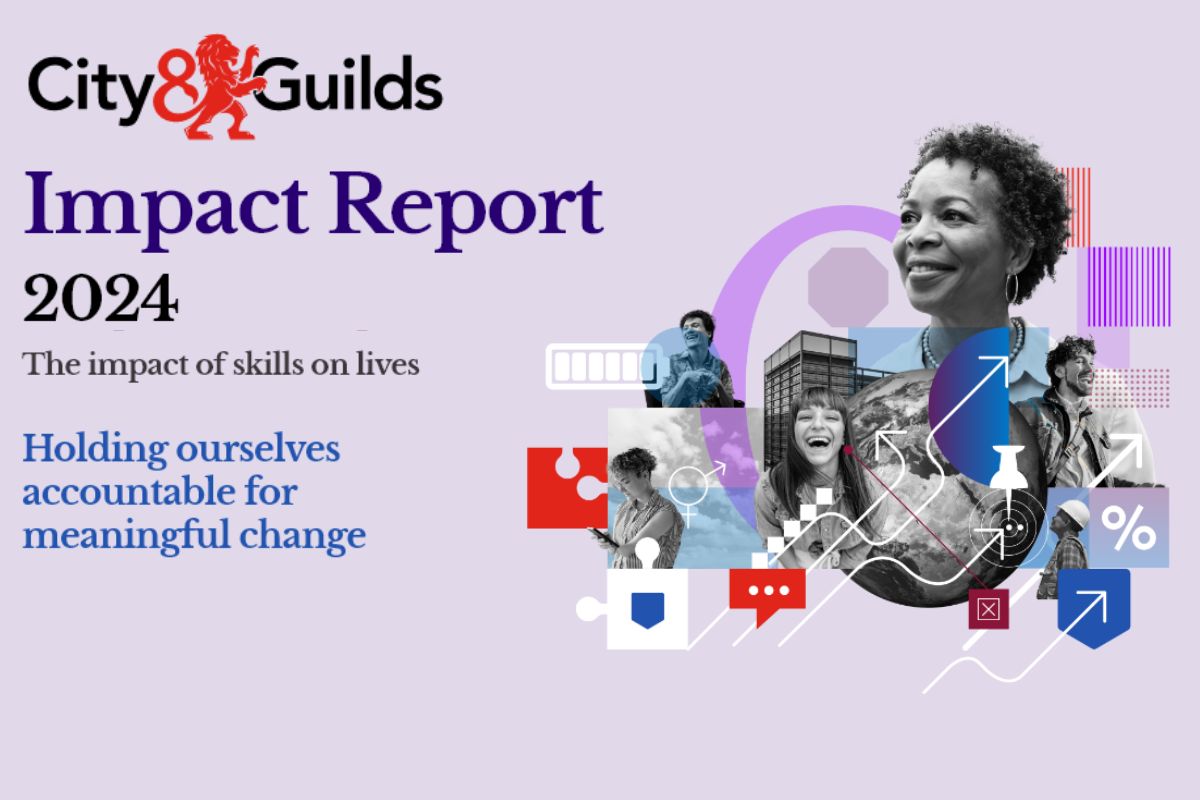Education Policy Institute publishes policy recommendations and “back-up plan” for 2021 exams

The Education Policy Institute (EPI) has today (Monday 9th November) published its recommendations on how the government should approach GCSE and A level exams in England in 2021, including a back-up plan in the event that exams are cancelled again in the summer.
- EPI calls for more rigorous “back-up” assessments to be taken by pupils instead of mocks, and used if summer exams are cancelled again due to Covid-19.
- If summer exams go ahead, the government should give serious consideration to giving pupils more options on their exam papers.
- The use of teacher assessed grades should be avoided until there is more evidence about their reliability and impact on different demographics of pupils.
- The government should urgently allocate extra catch up funding to poorer pupils to ensure that they are not disadvantaged when taking their exams; current funding falls short and is poorly targeted.
National exams were cancelled in the summer of 2020, which led the government to opt for a number of alternative grade arrangements, before finally deciding in most cases to fall back on pupils’ teacher assessed grades.
In contrast to other UK nations, the government has announced that all major summer exams next year are set to go ahead in England – but they will be delayed by three weeks to give schools and pupils extra time to prepare.
The government is yet to set out any credible Plan B for summer examinations, in the event that they are unable to take place again due to the pandemic. It continues to consult with Ofqual and exam boards on “contingency plans”, which are expected to be announced before Christmas.
The new EPI report contains recommendations on how the government should proceed with testing and examinations next year, including a contingency plan, designed both to ensure fairness for pupils and be deliverable given the short timescales involved.
The report also considers how the government can mitigate against lost learning time as a result of the pandemic, which is likely to have disproportionately affected the most disadvantaged pupils.
Concerns over pupils’ learning and preparedness for next year have increased following falling attendance rates in schools, brought about by the second wave of the pandemic.
Key recommendations: 2021 exams
Recommendations for changes to summer 2021 exams
If summer exams are able to go ahead next year, it is essential that they are fair, fully deliverable within a short timeframe and have the confidence of the public. We recommend that the government:
- Consider greater optionality in exam papers so that pupils have a better chance of answering questions on the content they have covered. While delivering optionality presents some challenges for exam boards, it will ensure fairness for pupils who have lost learning time. The government should consider a short-term funding increase to ensure that exam boards can accommodate this.
- Ensure that multiple papers covering a single subject are as spaced out as much as possible during the exam period. This ensures that if a pupil misses an exam to comply with Covid-19 guidance, they have another one to fall back on.
- Allow some grade inflation. Given that the 2021 cohort will have also experienced lost learning time and will be competing with the 2020 cohort for jobs and places in further and higher education, pupils’ grades should be allowed some inflation, pinned between the 2019 and 2020 cohorts.
Recommendations for alternatives to summer 2021 exams
In the event that summer exams are cancelled next year, the government urgently needs to set out a back-up plan for exams. We recommend that the government:
- Introduces a new series of benchmarking assessments to provide “contingency grades” if summer exams cannot take place for the majority of pupils. These new assessments would replace existing mock exams and would take place in the spring term. They would be set by the exam boards with an accompanying marking scheme – thereby providing greater consistency than traditional mocks. Schools would however have flexibility to only give pupils content they have covered.
- Urgently pursue further research on the impact of using teacher assessed grades on pupil outcomes, particularly for the most disadvantaged. Questions remain over reliability, teacher bias, and the impact of grade-inflation for predicted grades. Exam results from 2020 present an ideal opportunity to conduct such research.
Recommendations to support pupils experiencing lost learning time
Pupils will have lost months of learning time in the previous school year, while hundreds of thousands of pupils have not attended school during the current autumn term. In both cases, there is evidence that the poorest pupils have been most affected. To mitigate against the impact of lost learning time, we recommend that the government:
- Provide additional and urgent catch up funding for disadvantaged pupils this year, totalling £1.3bn. The majority of the government’s £1bn catch up funding is not targeted to disadvantaged pupils or specific year groups. Instead, we recommend a targeted approach of doubling the Pupil Premium for pupils currently in years 1, 7 and 11 and doubling the disadvantage weighting for those in year 13.
- Consider using the £143m under-allocation from the National Tutoring Programme (NTP) to further subsidise tuition so that schools only contribute 10% rather than 25%. The NTP launched last week, offering subsided tuition for disadvantaged pupils. However, a significant proportion of the funding has not yet been allocated. Given that schools may find it difficult to provide 25% of their own funding for the cost of tuition, the £143m available could be used to lower the cost, enabling more pupils to access this tuition.
- Ensure that higher education and further education institutions make greater use of ‘contextualised admissions’ – so that they place greater weight than usual on pupils’ backgrounds and the likely impact of the pandemic on their education when making decisions on admissions to their courses.
- Provide catch up support for the 2021 cohort once they are in further or higher education. Pupils are still likely to be at a disadvantage when moving to the next level of education. Additional funding should be made available in the next academic year to support catch up for students in their first year of college or university.
Commenting on the report, Natalie Perera, Executive Director of the Education Policy Institute (EPI), said:
“Given the extent of lost learning time due to the pandemic, the government cannot simply adopt a “business as usual” approach to exams next summer. Doing so would be unfair to thousands of pupils, particularly those from disadvantaged backgrounds, who have seen great disruption to their education through no fault of their own.
“We must ensure that summer exams are as fair as possible and have a credible Plan B if they cannot go ahead. The government must also urgently provide more catch up support for the poorest pupils this year.”
David Laws, Executive Chairman of the Education Policy Institute (EPI), said:
“Now is the time for the government to set out its proposals for next summer’s exams, to allow schools enough time to prepare and to give reassurance to pupils and parents.
“This is by no means a normal year of education, so it is vital that next year’s examinations reflect that. There is a strong case for changes to exam papers, to enable pupils to be assessed on the content that they have actually covered this year.
“We also have to be prepared for a scenario in which next year’s exams cannot take place. To do that, the government should consider using more formal “contingency assessments” in place of the usual mock exams, which students can then use as back up grades. It should avoid falling back on predicated grades again, as questions remain over their reliability.
“Pupils will face huge challenges to their education this year, so we must have a system that is fair. We cannot see a repeat of the turmoil that we had in the summer.”
Kevin Courtney, Joint General Secretary of the National Education Union, said:
“The NEU has been calling for a fair system of examinations in 2021, to avoid the farce of this year and ensure that students’ futures are never again put at risk by this Government. We agree with the Education Policy Institute that Gavin Williamson really should have listened sooner. Burying his head in the sand is no sort of strategy.
“We need greater optionality in order that students can be assured of a fair grade next summer. The question is why the Government has not pursued this already. Optionality would go some significant way towards accounting for the unequal impacts of Covid around the country. It would restore fairness by ensuring that students have the chance of a grade that actually reflects the things they know and can do, rather than topics which could not be accessed due to home circumstances.
“Gavin Williamson has made matters worse by failing to deliver around half of the IT equipment promised to disadvantaged students in the spring, and has since pivoted to rationing what few supplies are now available. He is baking unfairness into the system. Many young people who are forced to self-isolate will have even greater difficulty accessing learning, and current arrangements for next year’s exams will conspire to work against and disenfranchise those same students.
“The Westminster government needs to catch up with the other nations in the UK. In Wales and Northern Ireland content has already been reduced to give all students a fairer chance at a grade. This is the best way forward.
“We also need nationally moderated centre-assessed grades. We recognise the issues highlighted by the EPI but it would be possible, if Ofqual and DfE move swiftly, to have a more robust version this year. In Scotland, structures are being put in place to base judgments on internally and nationally moderated evidence and if we used a similar system in England, this would mitigate the concerns raised.
“We also think it is a sensible idea to offer additional funding to exam boards to help them manage the risk of making these changes later down the line than should have been the case. It is worth the effort to do so, to spare students a repeat of the fiasco of 2020.”











Responses